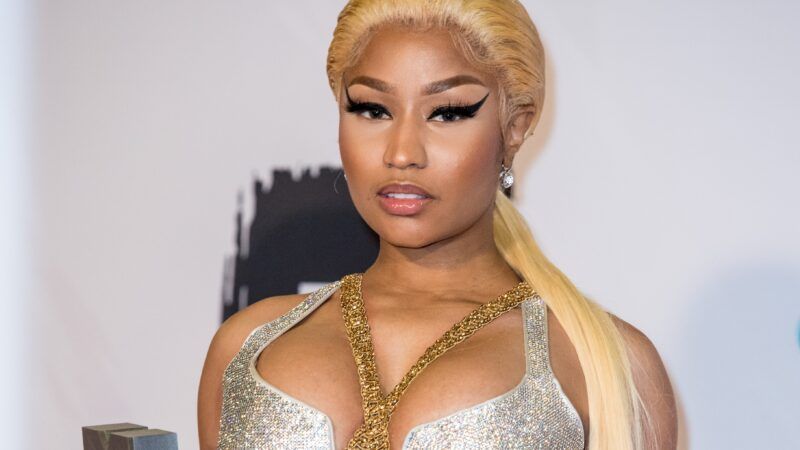Nicki Minaj's Vaccine Hesitancy Tweets Show Value of Persuasion Over Federal Mandates
Persuading vaccine objectors is a much better approach than imposing coercive top-down mandates.

Earlier this week, rapper Nicki Minaj tweeted a harrowing and improbable tale about her cousin's friend's COVID vaccine side effects. "My cousin in Trinidad won't get the vaccine cuz his friend got it & became impotent. His testicles became swollen. His friend was weeks away from getting married, now the girl called off the wedding. So just pray on it & make sure you're comfortable with ur decision, not bullied," she wrote.
"They want you to get vaccinated for the Met. if I get vaccinated it won't [sic] for the Met. It'll be once I feel I've done enough research. I'm working on that now," she added, later saying she was reluctant to travel for the Met Gala due to having a young child at home and that she'll probably end up having to get vaccinated to go on tour:
I know babe. A lot of countries won't let ppl work w/o the vaccine. I'd def recommend they get the vaccine. They have to feed their families. I'm sure I'll b vaccinated as well cuz I have to go on tour, etc. https://t.co/7SK5Df0yBf
— Nicki Minaj (@NICKIMINAJ) September 13, 2021
Her tweets evoked a response from Trinidadian health authorities, who refuted the claim that vaccines could cause swollen balls; a response from the White House, which offered to call Minaj to discuss the safety of COVID-19 vaccines; and dual monologues from MSNBC's Joy Reid and Fox's Tucker Carlson expressing their respective disappointment and elation at her stance.
Though Minaj is all over the place with her objections to personally getting vaccinated and choosing not to attend the Met Gala, she's right to emphasize the importance of allowing adults to make their own choices free from coercive, top-down government measures—and the importance of allowing people to make their own private medical decisions on their own timelines.
If Minaj does ultimately choose to get vaccinated, as she indicates is likely, it will be because the prospect of losing out on the money and joy reaped by touring is a price she's decided she is not willing to pay. But she's the one who can judge those trade-offs for herself, and the people she does business with are the ones who can decide how much risk of viral spread they're willing to accept in venues, recording studios, and the like.
Though the White House obviously won't offer to get on the phone with every American who has vaccine concerns—just those who have 157 million Instagram followers—their response to the testicle-deformation kerfuffle indicates that they still view persuasion as a useful tactic; perhaps they should've even tried persuasion for longer, staving off the impulse to impose federal mandates and incur the highly predictable backlash. For people whose vaccine hesitancy is rooted in distrust of the federal government, coercive measures may be effective in the short term, but are likely to squander trust in the long run (while incentivizing some audacious people to use fakes to skirt the rules).
People who have the administration's ear, such as CNN medical analyst Leana Wen, have gone so far as to suggest that unvaccinated people should be barred from commercial air travel. In some cities, your pre-teen or teen could be required to get vaccinated in order to attend mandatory schooling; in others, restaurants, bars, movie theaters, art museums, and indoor sporting events are walled off from unvaccinated people by order of the government. A better strategy—one which would have recognized limits on executive authority—could have been to let private businesses decide for themselves which policies to enact for workers and customers, as many were already doing, and to let individuals like Minaj decide when or if the scale tips toward vaccination on their own.


Show Comments (429)